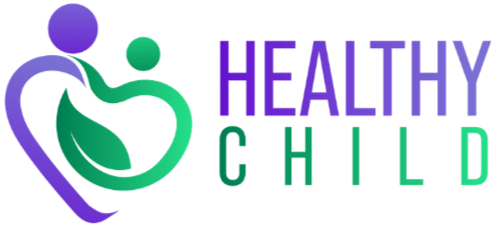ADHD Meltdown: Get to the Root Cause of the Explosive Behavior

Attention Deficit Hyperactivity Disorder (ADHD)
Oppositional Defiant Disorder (ODD)
Disruptive Mood Dysregulation Disorder (DMDD)
Anxiety Disorders
These are a few of the conditions now being diagnosed in children at alarming rates. If your child has been diagnosed with ADHD or a mood disorder, it might seem that the disorder is the cause of the intense behavior and meltdowns.
Let’s go deeper into this with the example of ADHD. ADHD is not a mood or behavior disorder; it’s considered a developmental disorder, but there is a high overlap in kids who are being diagnosed with ADHD and a mood or behavior disorder such as anxiety or ODD.
In the medical model, there is a diagnosis of ADHD. In this model, if your child has been given a diagnosis of ADHD, then he “has’ this disorder, and he can be treated for it.
But let’s take step back and think about it – what is a disorder? It’s a set of behaviors and symptoms.
Here are the typical behaviors and symptoms of ADHD.
- inattention
- distractibility
- forgetfulness
- not appearing to listen
- hyperactivity
- impulsivity
- restlessness
- excessive running or climbing
- excessive talking
- disruptive behavior
These behaviors are mostly related to delayed development of executive function of the brain. As I mentioned in my post Is Your Angry Child Purposely Defiant or Emotionally Stressed?, the prefrontal cortex is the part of the brain that manages executive functioning. Remember that this part of the brain is in continual development and may not be fully developed until age 30. Executive functioning is believed to be delayed or inefficient in children with ADHD, compared to their peers of the same age.
ADHD can be complex because of co-existing conditions – more than one disorder or symptoms at the same time. Many kids with ADHD behavior also have behaviors that fit into mood disorders and they may have symptoms like tics, sleep problems, allergies, or other physical chronic issues. Each of the symptoms or behaviors that make up the disorders or the physical issues have an underlying cause or perhaps multiple causes.
Instead of asking “does my child have ADHD” a deeper, more important question might be…
“What behaviors or symptoms is my child experiencing and what are the underlying causes of these behaviors or symptoms?”
It might be beneficial to look into all the potential underlying causes I mentioned earlier in this blog series. Chronic emotional stress and trauma will affect brain development. And many of the underlying physical imbalances, especially neurotransmitter imbalances and chemical/metal toxicity, will affect brain chemistry.
I’d like to suggest another way to look at this that may seem a little radical. If your child has been diagnosed with ADHD or ODD, it’s not something that your child “has”. The label of ADHD is a way to define a set of symptoms and behaviors so that treatment can be established. But your child doesn’t “have” ADHD, he has a variety of symptoms and behaviors – with underlying cause or causes that are unique to your child.
Do you want to treat this thing called ADHD or this thing called ODD or this thing called anxiety? Or do you want to get to the root cause or causes of the behaviors and symptoms – and remove them?
When you dig deeper into it and figure out the causes (physical, emotional, and developmental) of the behaviors that make up the diagnosis, then you are on track to help your child thrive and you can bring harmony into your home.
Healing can happen when you find the cause of the behavior and the underlying physical imbalances – and you work on removing them.
Our brains are continually reorganizing, and science shows the brain has the capability to change, adapt and rewire itself. Research shows that our brains can create new neural pathways and modify existing ones to adapt to new experiences, learn new information, and create new memories. Even damaged brains are capable of remarkable and amazing changes.
There is no question that parenting affects brain development. The most powerful healing you can give your child is to develop a deep, connected relationship and find the underlying causes of his challenges. You can support him and help him to emotionally regulate himself to prevent explosive meltdowns. You can explore the natural treatments, diet and nutrients that can balance brain chemistry and provide an environment in which your child can thrive.
A diagnosis of ADHD or another disorder might be helpful to get school support and accommodations.
But labels can also be harmful to children. A diagnosis or label can become a child’s identity, lowering their expectation of themselves and their parents’ expectations as well. Labels tend to stick even as children are changing and developing, and it may be difficult for children to leave behind the belief that they are “different” or “bad” or “something is wrong with me”.
Think about whether you want your child to have a belief that he is “disruptive” or “oppositional” or “defiant”. These are limiting beliefs that have pretty big consequences, since we tend to act in the way that we believe ourselves to be.
The important thing to recognize is that children with ADHD or mood or behavior disorders are challenging not because they are unmotivated, manipulative, willfully defiant or trying to make your life difficult. They are challenging because they have underlying emotional, developmental, or physical imbalances, and they currently lack the executive function skills or the emotional intelligence needed to do better.
All kids with ADHD behavior have unique gifts and strengths, and if you can uncover the causes of the difficult challenges and remove them, these amazing gifts and strengths can take center stage. With the right resources and individualized attention, all kids have the capability to learn and thrive and totally shine in their own unique way.
Read next . . .
How to Get Your Kids to Listen and Cooperate
Read all of the posts in this series . . .
Read Introduction What’s Causing Your Child’s Meltdowns
Read Post #1 Is Your Angry Child Purposefully Defiant or Emotionally Stressed?
Read Post #2 What Causes Stress in Children?
Read Post #3 Underlying Physical Imbalances May Cause Aggressive Meltdowns
Read Post #4 ADHD Meltdown: Get to the Root Cause of the Explosive Behavior
Read Post #5 How to Get Your Kids to Listen and Cooperate
Read Post #6 4 Steps to Help Your Kids Through Their Worst Meltdowns
Read Post #7 How to Prevent the Meltdowns and Create Peace in Your Family
Discover the Underlying Causes for Your Child’s Behavior
If you feel overwhelmed and frustrated with your kids, it’s likely there is a deeper need they are trying to communicate to you. If you’re ready to find a real solution instead of temporary quick fixes, then I’d love to show you what you can do to go from a chaotic parenting experience to a calm and cooperative relationship with your child.
I am currently offering a limited number of free assessment calls to help you identify your child’s needs and motivations behind the behavior so you can know exactly what to do to resolve it.
Here’s what we will do on your free 45-minute session:
- I provide a judgement-free, confidential space for you to talk about the specific struggles that exist in your family right now so I can help you determine what you can do to resolve it.
- Together, we will figure out exactly what your best next steps are to decrease those meltdowns, improve communication and cooperation, and most importantly, achieve a deeper connection with your child.
Find the clarity you need by scheduling your assessment call now!

